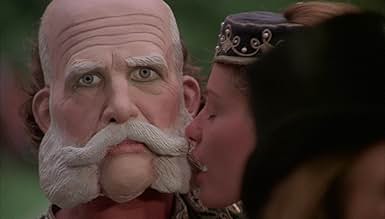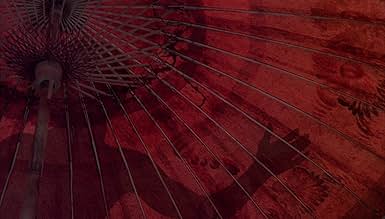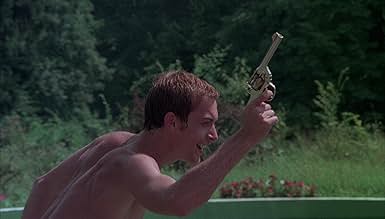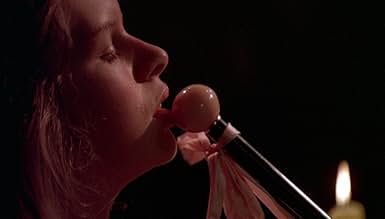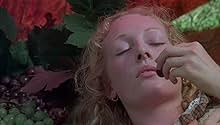Prince Rudolf, heir to the throne of the Austro-Hungarian Empire, deliberately provokes his father, Kaiser Franz Joseph, by his dissolute and feckless behaviour. His defiance of the Kaiser's... Read allPrince Rudolf, heir to the throne of the Austro-Hungarian Empire, deliberately provokes his father, Kaiser Franz Joseph, by his dissolute and feckless behaviour. His defiance of the Kaiser's rigid adherence to duty and the good of the empire leads to a tragic confrontation betwee... Read allPrince Rudolf, heir to the throne of the Austro-Hungarian Empire, deliberately provokes his father, Kaiser Franz Joseph, by his dissolute and feckless behaviour. His defiance of the Kaiser's rigid adherence to duty and the good of the empire leads to a tragic confrontation between power and hedonism at the Mayerling hunting lodge.
- Awards
- 1 nomination total
- Marie von Vetsera
- (as Therese Ann Savoy)
Featured reviews
I saw this film at Essex University in 1977 and have never had the chance to see it since.Where could I see this again?
This is like a study of society. One sided (rich people) it may be, but it's still vaguely intriguing to see how boredom gets them and pushes them to do crazy things. Like the scene almost at the beginning in the hay, which coincidently is the only scene that actually could lead to the pornographic conclusion. We do have a lot of nudity though and the love making is diverse.
Some people will be offended by that (especially because we're not only seeing "regular" couples/intercourse). This is by no means titillating or anything, but appalling? Maybe, depends on your threshold for such things.
You also don't really know the background on most of the people on screen or their relationship towards each other. While this adds to the mystery it's also frustrating and not really satisfying (no pun intended). A little more background and a little more fleshed out characters would've gone a long way. As it is, it's a decent film, with a neat message
This is a fascinating film which can be aligned for many reasons with Pasolini's Salo (they were both made almost in parallel). Both films are subversive historical studies of human sexuality and the treatment of the human body as a political object. Or more simply, the way bodies are always at the centre of the forces of power. The two films are very different - but not absolutely distinct. Both do concern the events at a distant place where sources of political and social power subvert the order of things. In Salo, however, it is an insatiable facistic power which reproduces itself through acts of abuse and murder. In Private Vice..., it is a subversive power of a less annihilistic order aiming to alter order by embracing passions and overturning the military order. Quite the opposite to Pasolini's much more bleak vision of politics in the shadow of modern forms of exploitation since WW2.
Private vice, Public Virtue follows a rebel son embracing the ideals of sexual freedom, dionysian joys such as wine and song, and the rebellious refusal to accept the orders of absent elders. The scenes where they mock the military ruler with caricatured masks as the army returns from battle is one such example. But throughout, the film seeks to alter roles and power structures. Women wield dildoes, nakedness is not the domain of women as in so many other films and sexual expression is an unstoppable force. The film is both a beautiful, utopian vision and a tale of the violent power of history.
Typically for Jancso', there is very little to relate plot-wise: as a matter of fact, this can be seen as simply an erotic fantasia on the infamous Mayerling affair in which the heir to the Austro-Hungarian empire, the Archduke Rudolph, carried out a suicide pact with his mistress. According to Jansco' and his regular Italian screenwriter Giovanna Gagliardo, however, the events were not so clear-cut. Although the film never strays from the Prince’s country estate, Jancso'’s realization of 19th Century Vienna is as visually sumptuous and technically elaborate as expected while the political subtexts as they relate to our modern age are equally important. Although this is the first film I’ve watched myself which dealt with this particular historical incident (there have been countless others over the years, with Anatole Litvak’s 1936, Max Ophuls’ 1940 and Terence Young’s 1968 versions being the best-known), it’s safe to assume that PRIVATE VICES AND PUBLIC VIRTUES is unlike any of them. For starters, most of the film’s running time is devoted to a marathon orgy to which the Archduke invites the younger generation of Austrian aristocrats to spite his father Emperor Franz-Joseph (a mask of whom is donned by several of the revelers). Apparently, a coup to overthrow the monarch had already failed and, consequently, the Archduke retired to his Mayerling estate to live a life of hedonistic abandon. Knowing full well that his family disapproved of his scandalous behavior, he further intends to shock the establishment by photographing the guests in flagrante and sending a copy out to his peers, thus exposing the veiled degeneracy of the ruling class. Ultimately, however, court officials present themselves at the gates of Mayerling to put a stop to the bacchanalian excesses…
The three main protagonists of the film are the Archduke, his stepbrother and stepsister who, forming an inseparable and incestuous ménage-a'-trois, are soon joined by an equally libertarian hermaphrodite when a circus troupe stops by the mansion. Having disposed of his boringly proper wife early on, the Archduke falls in love with this newest addition to his inner circle. Left alone after the guests have been dispersed, apprehended or executed (off-screen), the four lovers are ominously shrouded in white sheets like corpses during their final open-air rendezvous: an oppressively melancholy mood makes itself felt towards the end, aided immeasurably by Francesco De Masi’s lovely mournful score. The officials, ostensibly there to put a stop to the offending proceedings and arrest the Archduke, mostly stand around befuddled not knowing how to cope with the extraordinary situation – but their ultimate reaction is swift and abrupt, leading to an inspired slow-motion finale depicting the royal funeral procession.
Among the cast list, there were only three names that I recognized: the formidable Laura Betti (who as the loving nanny performs a handjob on her royal charge laying about in the hay!), Theresa Ann Savoy (she plays the crucial role of the hermaphrodite here and would later be equally central to Tinto Brass’ infamous CALIGULA [1979]) and Ilona Staller (adopting the evocative stage name of Cicciolina, she later became a highly popular porn star and, later still, an Italian MP – but, ironically, she is here wasted in the thanklessly chaste bit of the Archduke’s wife!). Although there is much full-frontal nudity involved, the only time it really approaches hardcore territory is the afore-mentioned scene with Betti – unless one wants to count the brief instances of bestiality when some of the guests decide to get it on with a few runaway turkeys!! Typically for Jancso', his characters resort to much communal dancing and game-playing – which is here joined by the improbably effective singing of English childhood ditties (including “Baa-Baa-Black Sheep”)! The sparse original music, then, has been mingled with classical pieces – notably Strauss’ “The Blue Danube” – and, appropriately enough, a handful of military marches.
I suppose that, for the uninitiated, all of the above would seem pointlessly perverse and terminally tedious but, stylistically, the film was something of a new departure for Jancso': while the intermittently creative editing (with especially notable use of ellipses) and his trademark long sequence-shots are still in evidence, he reportedly utilized 343 shots here as opposed to the lowly two digit figures of earlier works. On the downside, the video presentation is a bit dodgy at first: an obviously unrestored print has been utilized for the transfer (albeit uncut, as proudly announced on the sleeve of the Italian R2 DVD) but is still acceptable enough for its velvety cinematography and extreme handsomeness to shine nonetheless; the layer change, however, is quite roughly handled (at least by the Pioneer model I watched it on).
Did you know
- TriviaThis movie avoids any reference or mention of Crown Prince Rudolf's mother Empress Elisabeth, due to her near saint-like status in Hungary.
- Crazy creditsAfter the last on-screen credit, the camera follows the funeral procession, in slow motion, for a full minute.
- ConnectionsReferenced in Rewind This! (2013)
- SoundtracksBaa Baa Black Sheep
Traditional nursery rhyme
- How long is Private Vices, Public Virtues?Powered by Alexa
Details
- Release date
- Countries of origin
- Languages
- Also known as
- Private Vices, Public Virtues
- Filming locations
- Production companies
- See more company credits at IMDbPro
- Runtime
- 1h 44m(104 min)
- Sound mix
- Aspect ratio
- 1.85 : 1

